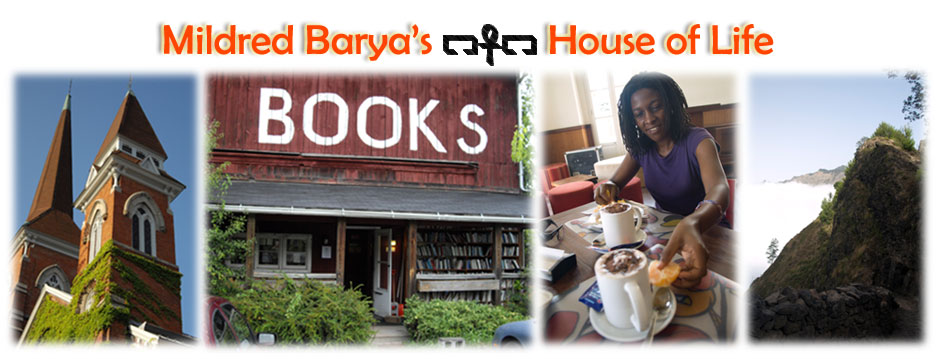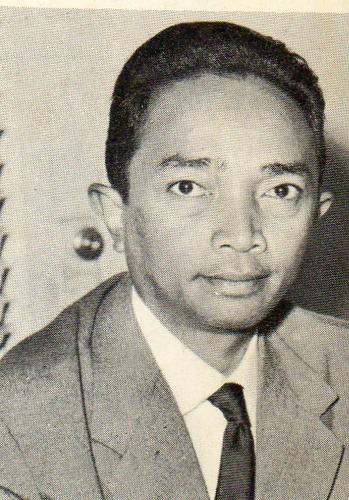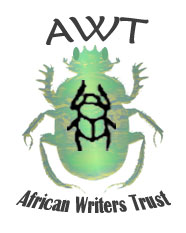Before I leave Madagascar, I thought I’d feature someone born in recent times or at least in the generation following Flavien Ranaivo.
Flavien Ranaivo (May 13, 1914 – December 20, 1999), Jean-Joseph Rabearivelo (March 4, 1901 – June 23, 1937), and Jacques Rabemananjara (23 June 1913–1 April 2005) are probably the three foremost poets in Malagasy literature that began their literary careers writing in French, during the Pre-independence and colonial period.
Their writing in French language coincided with the Negritude movement of the 1930’s, which marked the start of francophone African writing. However, the Malagasy people had a written literature long before French and the Negritude movement. Manuscripts written on tree bark, the sorabe (great texts), recorded genealogies and religious thoughts in the Malagasy language. As early as 1828, Madagascar had a printing house and manuscripts produced by a literate Malagasy elite.
Most of Madagascar’s ancient oral literature written conformed to four types/forms: the kabary, the hainteny, the antsa, and the angano. (Kabary is a kind of speech in prose, filled with proverbs, given at official or solemn occasions. Formerly it was through kabary that the king or queen pronounced their edicts. Today, the kabary is used in major events of family life; weddings, initiations, funerals, etc). Hainteny—literally means words of knowledge. It’s a poem in the form of a sparring dialogue on the theme of love, laden with proverbs, and establishing comparisons between phenomena of nature and exemplary human situations. The tone is often mocking or lyrical, and the poems can be applied to any daily life situation. Antsa is chants; originally to celebrate glory, often after a military victory, while Angano is a tale or legend in prose.
In the introduction to Voices From Madagascar anthology (2002), it says that Jean-Joseph Rabearivelo “grew up in the first stage of the colonial period, caught between his will to remain profoundly faithful to his Malagasy roots—he always rejected the possibility of French citizenship, which may have earned him financial security—and the seductive power that French literature had over him.”
Another poet, Jean Verdi Salomon Razakandrainy, better known as Dox, wrote mainly in Malagasy but translated French classical plays (by Racine and Corneille) into Malagasy. Like Jean-Joseph Rabearivelo in staying true to Malagasy, Dox claimed that “writing in French would have been for him grafting his poetry to a tree where it could bloom only malignantly.” In spite of his stand, a few years before his death Dox released a volume of poetry written in French.
Jacques Rabemananjara, continuing the resistance, mastered the French language with the intention to know better how to resist colonization. In 1937, he traveled to Paris to study literature and law and met the African and Caribbean intellectuals of Presence Africaine: Alioune Diop (Senegal), Aime Cesaire (Martinique), and Leopold Sedar Senghor (Senegal). As a poet, politician, civil servant and pan-african, Jacques Rabemananjara was instrumental in demanding Malagasy autonomy and for his role he was arrested, received a life sentence and spent time in several prisons where he continued to write. One cannot separate his life, like his poetry, from political involvement and social commitment. In 1960 when Madagascar became independent, Jacques Rabemananjara was released from Marseilles prison and returned to Madagascar where he took office as a government minister and later on became vice president.
I’ll now move on to Jean-Luc Raharimanana, a post-colonial baby born in 1967. A teacher, poet, journalist and writer, by 1987 Jean-Luc Raharimanana had received prizes in poetry including the second prize for poetry on the occasion of the 50th anniversary of the death of Malagasy’s foremost poet, Jean-Joseph Rabearivelo. According to Voices From Madagascar anthology, Jean-Luc Raharimanana was also awarded in 1989—at the age of 22—the Tardivat prize (Radio France International) for his short story, Le Lepreux (The leper), and the second prize for his play, Le Prophète et le Président, 1990.
While his predecessors were mainly preoccupied with freedom from foreign rule and preserving the wealth of the Malagasy homeland, Jean-Luc Raharimanana is more of a surreal writer dealing with violent and disheartening social and political realities, and the insurmountable task of reconciling traditional values with the needs of emerging modern societies.
Here’s a brief extract from Case Closed by Jean-Luc Raharimanana. Full story published in Voices From Madagascar, 2002.
The woman stopped crying and opened up her dead baby’s stomach. The knife tore into the skin, sunk itself into the flesh, already blue. No blood flowed. She pulled out the entrails. Cut. Pulled out the small heart, dissected the veins. The lungs shriveled up with a hiss of air. She emptied the body. The tears were like acid on her cheeks. Again, her hiccuping and shaking began. She threw the organs into the garbage can. Her hands were sticky, the rotten flesh had secreted a gluey and nauseating liquid. She put the child into the bathtub, washed the empty body. She took her bag, fished out the sachets, stuffed the child’s stomach and stitched up the skin. She injected some formalin into the split veins. She dressed the body. No one would think to find any drugs in there.
She went out. She didn’t know it was night. Everything was already completely black. Everything was already so dark. She didn’t hear the sea caressing and groaning on the beaches. She didn’t hear the waves, licking the hulls of the boats. All she saw was this light, shining over there, on the small boutre. She marched straight ahead, clasping the small body against hers.
She boarded the dhow, unaware of her precarious balance. She climbed down into the cabin. The man was waiting for her there.
“Is it done?”
She cried and cried…
__
Other notable Madagascar writers include: L.X.M. Andrianarahinjaka, David Jaomanoro, Christiane Ramanantsoa, Narcisse Randriamirado, Serge Henri Rodin, Bao Ralambo, Jean-Claude Fota, Lila Ratsifandriamanana, Alice Ravoson, Esther Nirina, Henri Rahaingoson, Michele Racotoson, Johary Ravaloson and Samuel Ratany.
One last thing about Madagascar poets and writers: don’t you just love their names?







No comments yet.